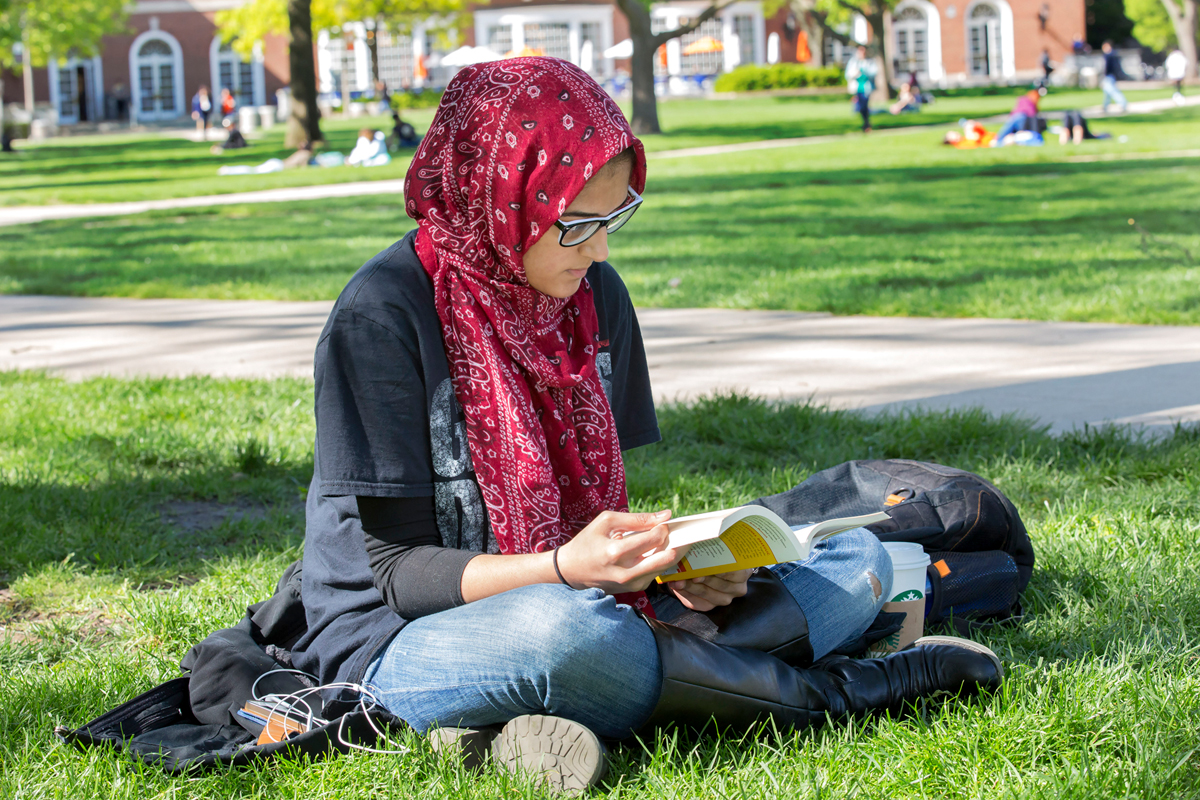English
English is organized to provide instruction in literature, literary theory and criticism, expository and creative writing, writing studies, education, film, cultural studies, and closely related fields. Students have many choices in planning a field of study, but the program is designed to accommodate students who seek to broaden their familiarity with literature, to intensify their language skills for personal and professional reasons, and to learn more about literature's relationship to other arts, history, philosophy, psychology, and the modern languages.
There are three concentrations offered through English.
The English concentration provides a broad base of instruction in literature in English across a range of historical periods and forms. Students in this concentration will study the methods and critical concepts of literary and cultural study, intensify their language and analytical skills, and learn more about the historical development of literature in British, American, and global Anglophone contexts from the medieval period to the present day.
The English Teaching concentration leads to a professional educator license to teach in Secondary School. Coursework in this concentration is largely similar to that required in the English Concentration, and it is based on that concentration’s formal and historical goals. Students working toward earning a teaching license are guided toward additional coursework focused on language and composition.
The Topics in English concentration enables students to pursue intensive study in a focused area of inquiry, culminating in a senior capstone project. Based on faculty-wide research strengths, the Topics in English clusters include: 1. Literature & Science (technology, medicine, neuroscience, and the environmental humanities), 2. Media Cultures (manuscript and print culture, visual culture, new media, and performance studies), and 3. Race, Indigeneity, Gender, & Sexuality (RIGS).
- ENGL 200—Introduction to the Study of Literature
Students are also encouraged to take other 100- and 200-level ENGL courses of interest, any one of which can serve as a gateway to the major..
English prepares students for a variety of different career paths.
- High proficiency in reading/writing/speaking
- Good listening, clarifying, questioning, and responding skills
- Ability to conduct/explain research
- Ability to make critical observations/decisions
- Ability to read analytically
- Ability to read for style/ideas
- Comprehensive command of grammar and vocabulary
- Ability to relate to others with empathy and understanding
- Actor or Actress
- Advertising Account Executive
- Archivist
- Art Critic
- Author
- Bibliographer
- Book Critic
- Bookstore Manager
- Campaign Manager
- Claims Examiner
- Columnist
- Commentator
- Communications Specialist
- Community Relations Specialist
- Copy Writer
- Corporate Trainer
- Critic
- Editorial Assistant
- Editor
- Educator
- Fact Checker
- Freelance Writer
- Fundraiser
- Historical Society Specialist
- Journalist
- Legislative Assistant
- Librarian
- Media Analyst
- Media Specialist
- Museum Curator
- Paralegal Assistant
- Personnel Manager
- Playwright
- Proofreader
- Public Relations Specialist
- Publicity Assistant
- Publisher
- Reporter
- Research Assistant
- Researcher
- Sales Representative
- Speech Writer
- Teacher
- Textbook or Technical Writer
- Writer
- Participating in undergraduate research
- Applying for a study abroad experience
- Utilizing resources of the LAS Career Services
- Visit the Advising Blog to learn more about events, activities, and opportunities happening in English department.
- Joining a Registered Student Organization (RSO) related to this major, such as:
- English Student Association (ESA
- English Honors Society, Sigma Tau Delta.


